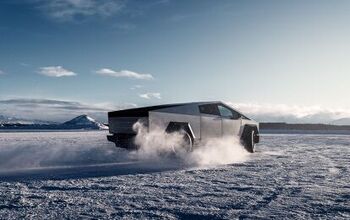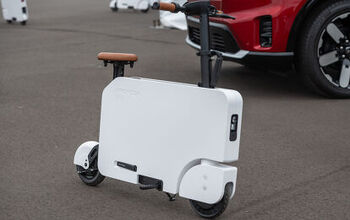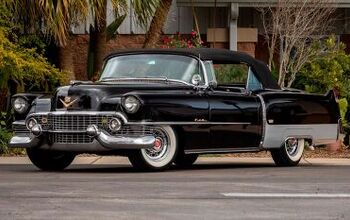BMW Group Plotting More Crossovers for Mini Lineup

Mini might not make sense as a automotive company anymore, at least not in the United States. Consumer tastes have shifted away from small cars and practically everyone is interested in crossovers these days. While this issue has been less pronounced in Europe, where the Mini has enjoyed an uptick in sales, the brand has been struggling in North America. U.S. volumes are comparatively low and have been on the decline since 2015. It’s not a total disaster, but annual deliveries have been wallowing south of 50,000 units for a couple of years now. Nobody can pretend there isn’t a problem.
The fix, according to parent company BMW Group, is to fill up Mini’s product portfolio with crossover vehicles while also giving the little Hardtop a bit of love.
Broadening the lineup makes sense, one only needs to take a gander at Porsche’s bottom line for evidence. But, unlike Porsche, Mini isn’t getting out ahead of the curve so much as it’s playing catch up. It’s also called Mini, making the move toward larger vehicles more than a little ironic. However, let’s not forget how meaningless the backlash against Porsche’s change in strategy turned out to be after the Cayenne and Macan started spinning straw into gold.
In a recent interview with Automotive News, BMW Group sales head Pieter Nota explained that the Mini brand would pursue new products. While the Hardtop is poised to go electric, at least to some degree, the rest of the line is supposed to be fleshed out via bigger models — namely crossovers.
“That’s a growing segment,” Nota said. “Without revealing anything, we will see growth in that segment.”
Nota also confirmed that the brand wouldn’t be abandoning the United States like Smart did. “Unlike some of our competitors, we are not turning our back to the U.S.,” he explained. “We see that even as an opportunity.”
That would seem to suggest the brand will go hard with crossovers. Nota expressed excitement for the new Mini Electric and John Cooper Works, but neither are likely to move in meaningful numbers inside of North America. They’re both small cars, the JCW won’t have much appeal outside of the enthusiast crowd, and the Mini Electric ( now called the SE) is expected to have a lackluster range and be ill-suited for American tastes.
“We wanted to avoid putting too much weight and too much cost into the car [with a larger battery],” Nota said, adding that the Mini’s range would be “optimal” for in-town driving.
While the brand is obviously looking at promoting electrification, Mini’s overarching plan will likely mimic BMW’s. Expect a broader array of powertrains — with all-electric being an option, rather than a requirement. “What we see in global markets is that the rate of acceptance of electric mobility is differing,” Nota said. “But we do see overall an increase in the acceptance of electrification.”
[Image: Casimiro PT/Shutterstock]

A staunch consumer advocate tracking industry trends and regulation. Before joining TTAC, Matt spent a decade working for marketing and research firms based in NYC. Clients included several of the world’s largest automakers, global tire brands, and aftermarket part suppliers. Dissatisfied with the corporate world and resentful of having to wear suits everyday, he pivoted to writing about cars. Since then, that man has become an ardent supporter of the right-to-repair movement, been interviewed on the auto industry by national radio broadcasts, driven more rental cars than anyone ever should, participated in amateur rallying events, and received the requisite minimum training as sanctioned by the SCCA. Handy with a wrench, Matt grew up surrounded by Detroit auto workers and managed to get a pizza delivery job before he was legally eligible. He later found himself driving box trucks through Manhattan, guaranteeing future sympathy for actual truckers. He continues to conduct research pertaining to the automotive sector as an independent contractor and has since moved back to his native Michigan, closer to where the cars are born. A contrarian, Matt claims to prefer understeer — stating that front and all-wheel drive vehicles cater best to his driving style.
More by Matt Posky
Latest Car Reviews
Read moreLatest Product Reviews
Read moreRecent Comments
- Jbltg The more time passes, the more BMW's resemble Honda. zzzz
- VoGhost Doubling down on the sector that is shrinking (ICE). Typical Nissan.
- Dwford I don't think price is the real issue. Plenty of people buy $40-50k gas vehicles every year. It's the functionality. People are worried about range and the ability to easily and quickly recharge. Also, if you want to buy an EV these days, you are mostly limited to midsize 5 passenger crossovers. How about some body style variety??
- SCE to AUX The nose went from terrible to weird.
- Chris P Bacon I'm not a fan of either, but if I had to choose, it would be the RAV. It's built for the long run with a NA engine and an 8 speed transmission. The Honda with a turbo and CVT might still last as long, but maintenance is going to cost more to get to 200000 miles for sure. The Honda is built for the first owner to lease and give back in 36 months. The Toyota is built to own and pass down.


































Comments
Join the conversation
A company can keep turning out crap for a while and live off nostalgia and reputation, but that corporate laziness eventually catches up with you. Mini isn't and never was a premium brand. There JCW versions are ok, but they are little more than gussied up Volkswagens. VW just killed the Beatle. BMW should do the same with mini.
At the risk of foisting the writing style guide of we commenters on TTAC editors and contributors, 'MINI' denotes the 2002-2019 product built by BMW, and 'Mini' distinquishes the circa 1959-2010ish totally British products that inspired the BMW MINI. Even apart from commenting on TTAC articles, this is the style I use online to distinquish the two products with two different origins.